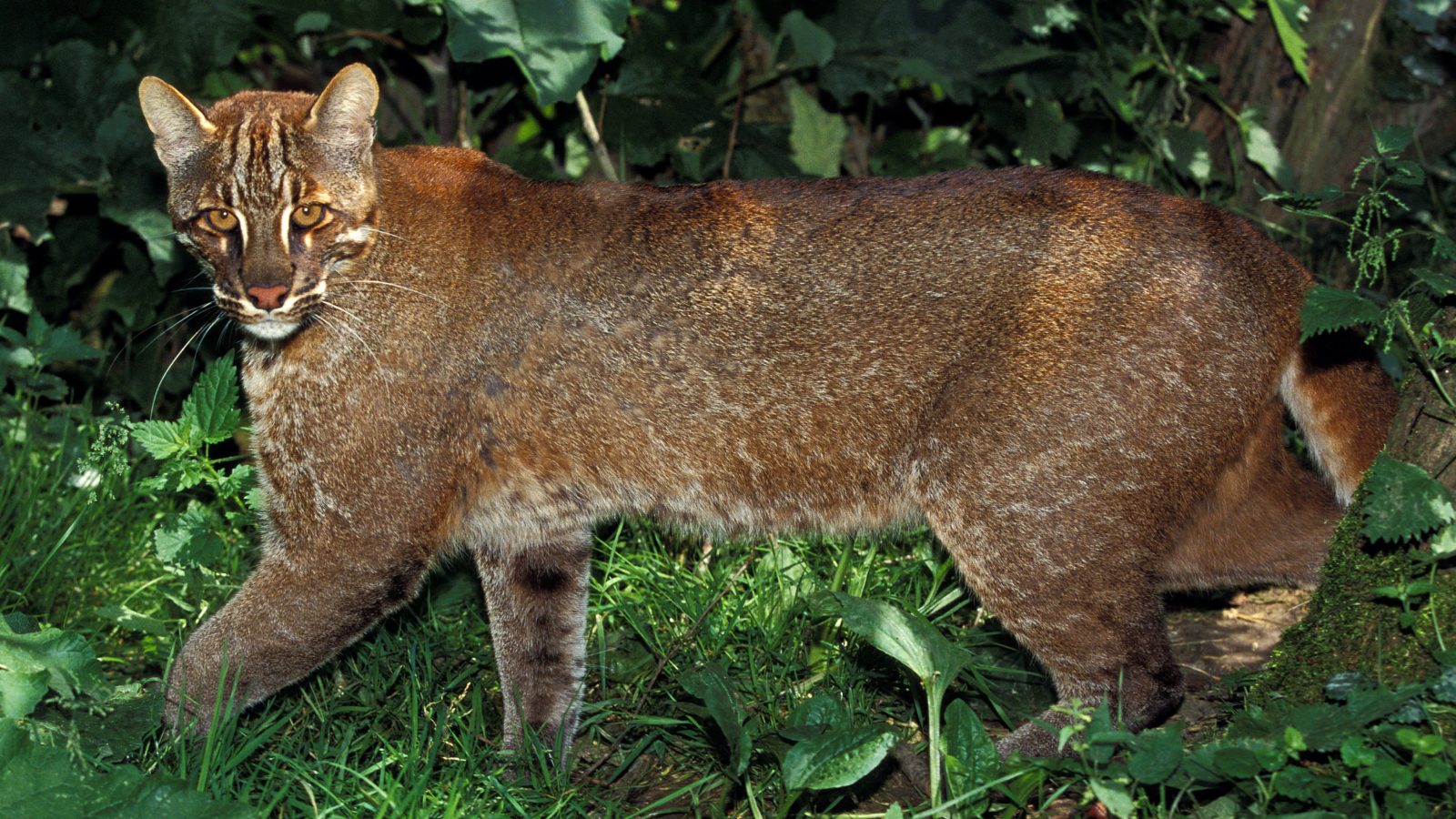QUICK FACTS
Name: Asian golden cat (Catopuma temminckii)
Where it lives: China, Nepal, Southeast Asia and northeastern India
What it eats: Birds, reptiles, small mammals like rodents and larger mammals like young deer
The Asian golden cat, also known as the Asiatic golden cat or Temminck’s cat, is a feline endemic to some of Asia’s densest forests. It comes in a wide palette of colors, plucks birds before eating them and — despite weighing no more than 35 pounds (16 kilograms), or two to three times as much as a domestic cat — is bold enough to kill prey such as buffalo calves, small muntjacs and baby deers.
Although it prefers to hunt on the ground, the Asian golden cat can also climb trees. It kills larger prey with a strong bite to the neck, prowling sub-tropical and tropical forests at various times of day. While researchers long thought that Asian golden cats are nocturnal, more recent evidence suggests these cats have irregular activity patterns that may peak at twilight.
The species can live up to 20 years and at altitudes ranging from sea level to 14,050 feet (4,282 meters), according to a 2016 biodiversity survey in Bhutan. This survey and others showing Asian golden cats living at very high elevations suggest highlands may be important habitat for the species.
Asian golden cats have also been spotted in open areas with rocky tracts, and they are even known as “rock cats” in parts of China, according to the ISEC. Their ranges are about 20% larger than those of the clouded leopard (Neofelis nebulosa), despite the two species exhibiting similar behaviors and overlapping in their distribution.
But as a result of their preference for forest habitats, Asian golden cats are especially vulnerable to deforestation, which has caused a huge loss of habitat for the species. Southeast Asian forests have some of the highest deforestation rates in the world due to the expansion of crops like oil palm, coffee and rubber, according to the ISEC.
Asian golden cats are also threatened by illegal hunting for their pelts and bones, which are used in traditional medicine, and for their meat, which is considered a delicacy in some regions, according to the ISEC. Where Asian golden cats come into contact with livestock such as sheep and goats, the predators sometimes kill farmers’ animals, leading to retribution killings, the society says.














